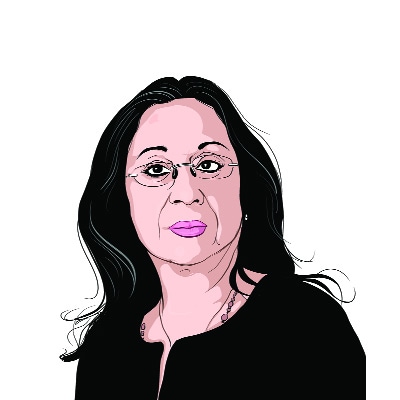Opinion The campaign begins
Neither of the two men who lead the race to become Indias next prime minister raised local issues.
So the campaign for 2014 has begun. While political pundits and aged,sulking leaders in Delhi mulled over irrelevant details like when the BJP should announce its candidate for prime minister,the sound of bugles heralding battle could be heard from Rajasthan last week. On a day of white,searing heat,Narendra Modi arrived in Jaipur to address the largest political rally I have seen in longer than I can remember. The next day the Congresss uncrowned prince addressed a more lacklustre gathering in Udaipur. Neither of the two men who lead the race to become Indias next prime minister raised local issues,making it clear that it was an election bigger than the one due in November for Rajasthans legislature that they were thinking about.
It was to Jaipur that I went because this was Modis first big rally in northern India. And when I saw the passions Modi evoked in his audience,I found myself wondering if he were not a little afraid of the aspirations that now rest with him. If he does what Atal Bihari Vajpayee did,which is just slot himself into the template honed by Congress prime ministers,and not do much more,then within months the people who now hail him as Indias shining hope will turn on him. The reason why he has been invested with so much hope is because a deep sense of hopelessness hangs over India at the moment like some grim pall. Everyone feels it. The richest Indians,the poorest and those in between because it manifests itself in different ways. In rising prices,a falling rupee and for the urban middle classes,in the drying up of the job market.
Modi has become very good at identifying the reasons why this has happened. In Jaipur he mocked the Congress for devoting itself to the service of one family instead of the country,for trying to save its government instead of the rupee,and for corruption scandals that he said constituted a new alphabet. Will he be as good,if he gets the chance,at finding answers? Or will he rule as the Congress has done,by throwing sops at the common man while allowing crony socialism of the worst kind to prevail in Lutyens Delhi?
These are questions I asked myself,as I listened to the cries of Modi. Modi. Modi,rise from that vast gathering in Jaipur. News of how big the crowds were and how passionate reached Delhi before I did,so when I turned on the news that evening,I saw that devotee of the Gandhi family,Jairam Ramesh,mock Modi. Me,me,me. I,I,I. That is all he (Modi) says,Rahul does not do this,he said smugly.
In Udaipur the next day,Rahul made a rare public appearance to announce that the Congress would always be on the side of the poor. He listed rights that his mothers government has given the poor. The right to food,land,education,forests,jobs. And,as I listened,I found myself wondering why we do not yet have the right to clean water,healthcare,sanitation and halfway decent government schools.
Have you ever met an official,even a lowly one,who sends his children to a government school? I have not. Why do we in the media not ask this question more often? I do not know. Why have we not made a huge noise about bureaucrats recently being given the right to medical treatment abroad? Why do we not demand to know why politicians and bureaucrats should not be forced to use the hospitals they build for the common man? Why should schools built for the common man be too common for the children of political leaders? I am not the only one asking these questions. I hear them asked by common people wherever I go,and they nearly always add that they think it is because of corruption.
Corruption,bad governance and prices have created a sense of despair and doom that I have never seen before in long years of covering elections. Not even in 1977 did it exist because then it was rage that was the defining mood,rage against the excesses of a dictator. This time too there is rage but it is hopelessness that prevails and a desperate sort of expectation that perhaps if Modi does become prime minister,he will be able to bring real change. This is why the endless debates on national television about his communal and criminal credentials make no difference to ordinary Indians. This is why the charges flung at him daily about being anti-Muslim make no difference. He is seen only as someone who can lift India out of the morass into which she has sunk in the past decade,and that is the secret of his appeal.
Follow Tavleen Singh on Twitter @tavleen_singh





